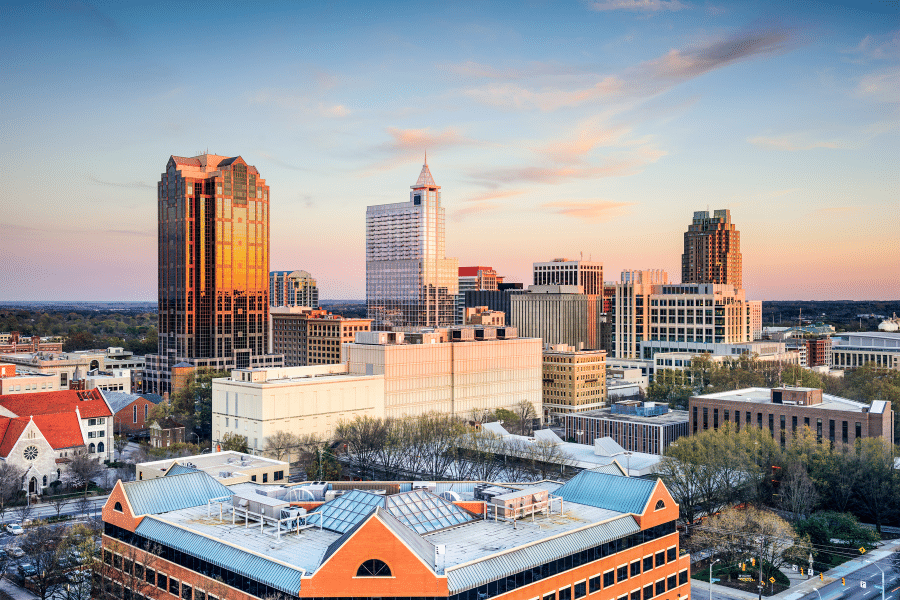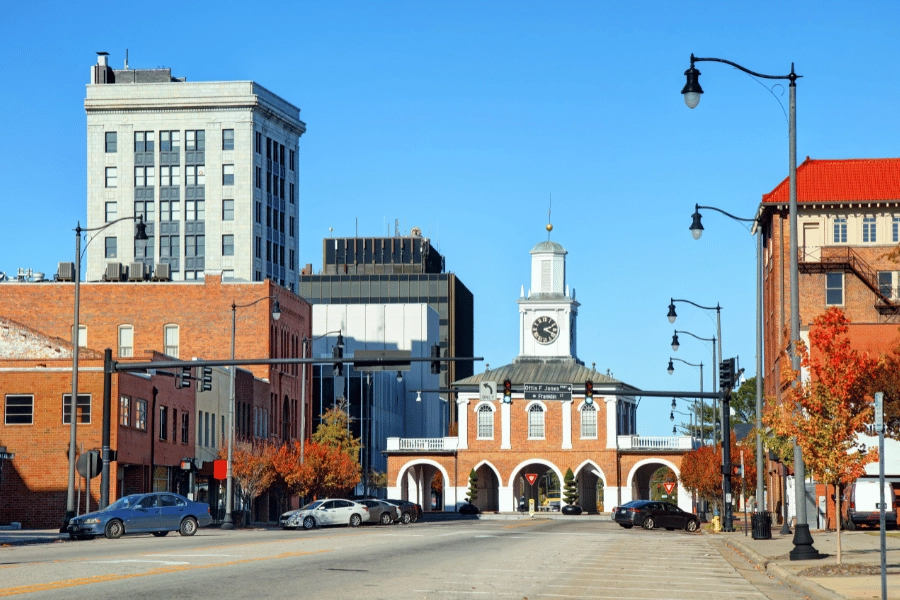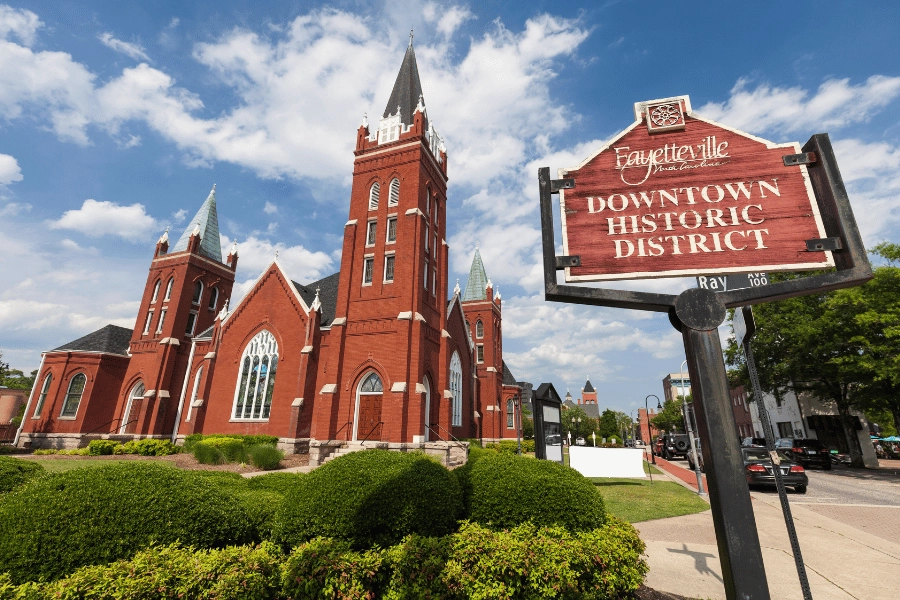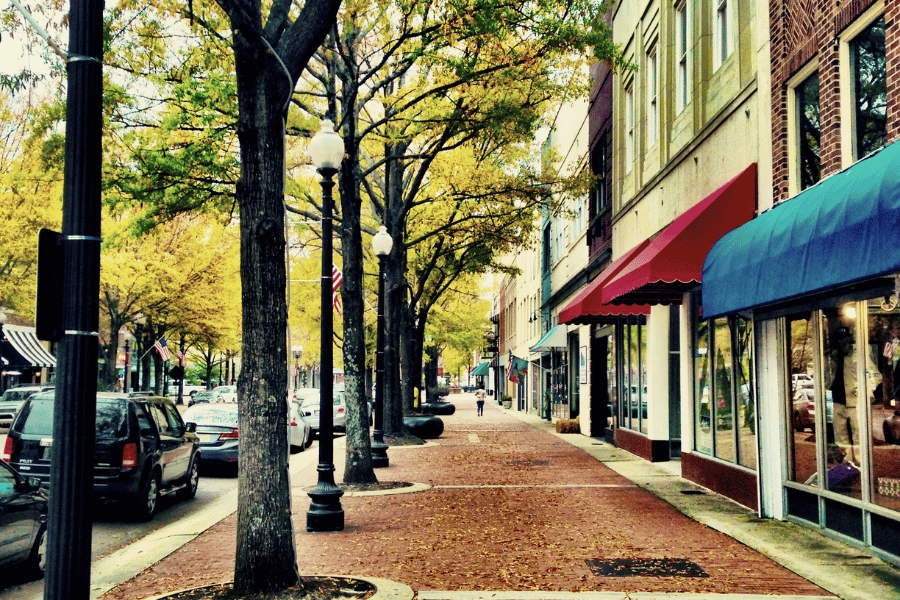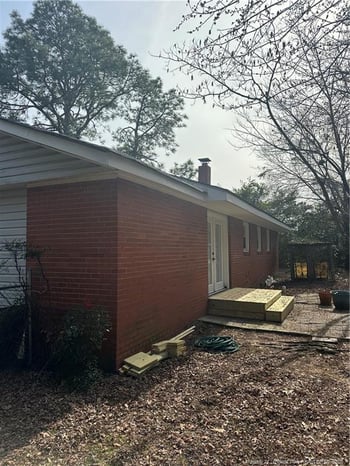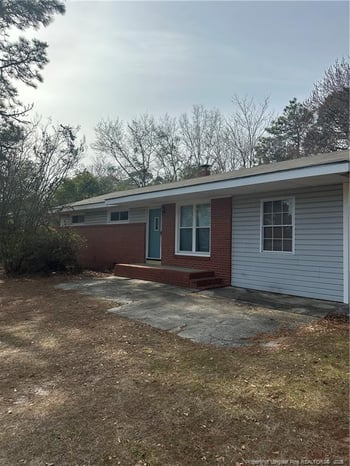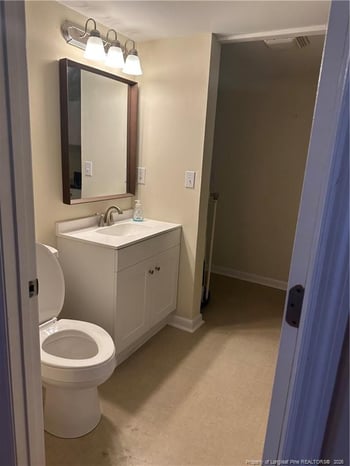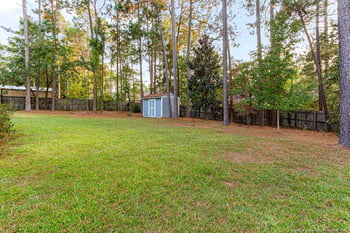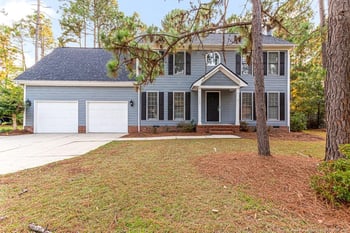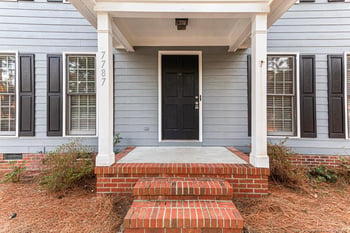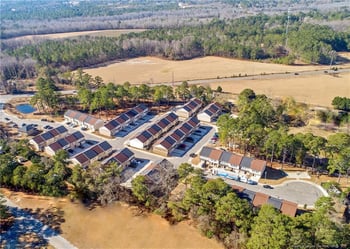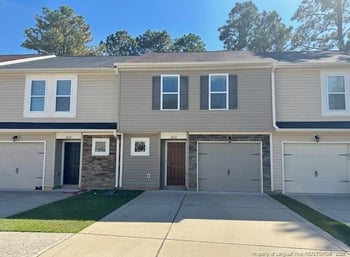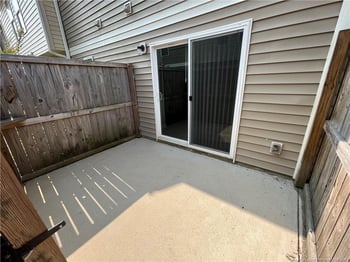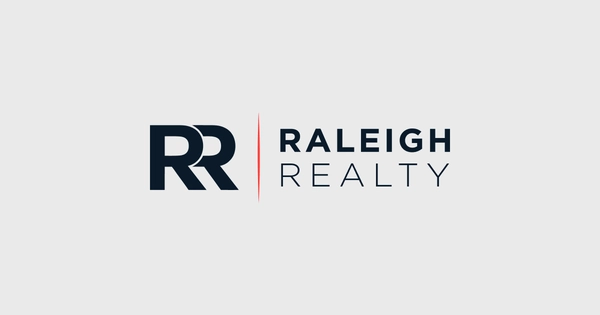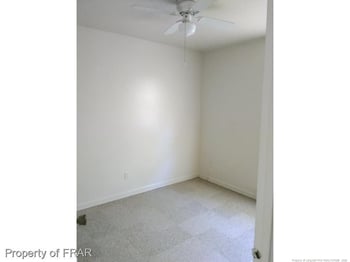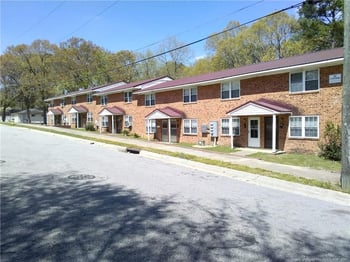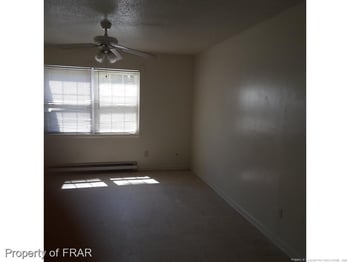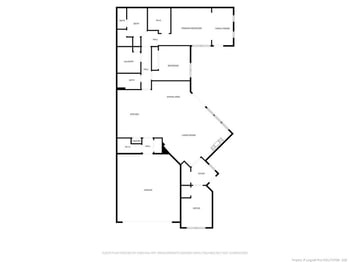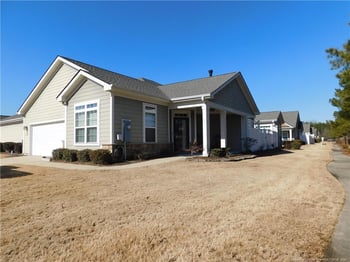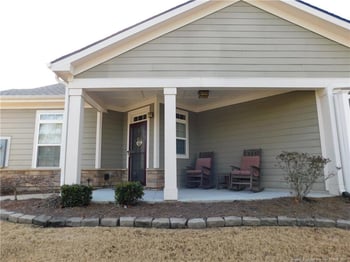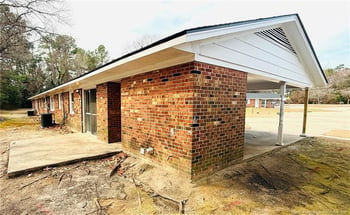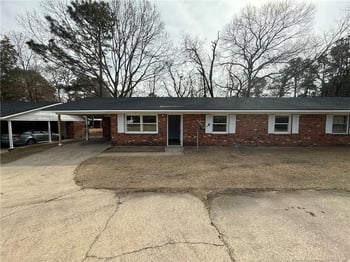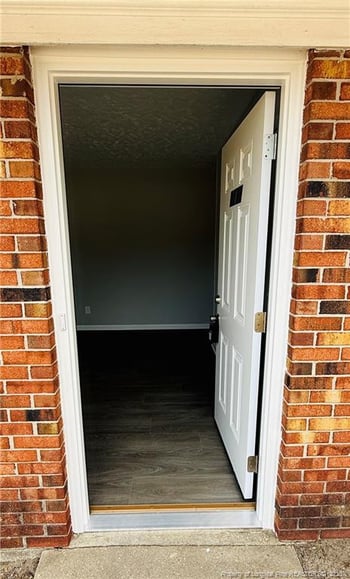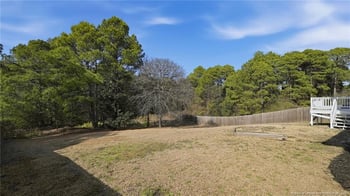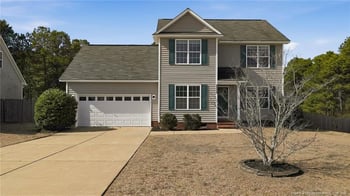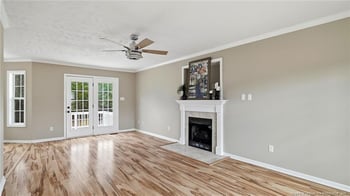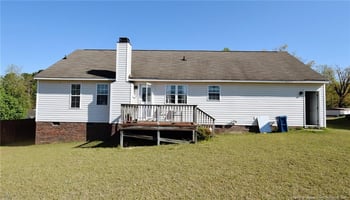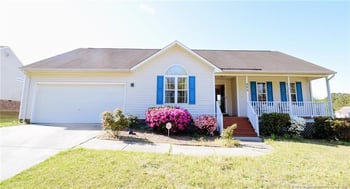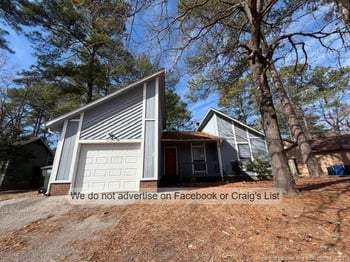Living in Fayetteville, NC
Are you considering moving to Fayetteville, NC? Here are seven things to know about living in Fayetteville.
Fayetteville, NC, is a large and thriving community in the Sandhills region of southeastern North Carolina. The city is the seat of Cumberland County and has easy access to large cities like Raleigh and Charlotte.
For commuting and traveling, Fayetteville is conveniently located adjacent to Interstate Highway 95, a central north-south corridor that links the city to Washington DC, Baltimore, and New York to the North and Charleston, Orlando, and Miami to the south.
By 2025, the Fayetteville Outer Loop will connect unseen parts of the region. With the Interstate, Fayetteville is also connected to the beaches and mountains. Most importantly, Fayetteville encompasses aspects of the Fort Bragg Military Base adjacent to Pope Army Airfield.
Downtown Fayetteville offers beautiful homes for sale and is a hot spot among residents and visitors. Over the last 20 years, the city has worked tremendously hard to continue developments and changes to the city.
The downtown area has many local shops, dining options, entertainment, and vibrant arts and culture. You can even visit the Airborne and Special Operations Museum, which honors the City's unique connection to service members.
The area's growth is often accredited to the $40 million baseball stadium, home to the Fayetteville Woodpeckers, an Astros affiliate. Downtown, you will also find many one—and two-bedroom luxury apartments.
It's safe to say that Fayetteville has something for everyone to enjoy. The opportunities for growth and expansion are endless, and the city will continue to increase in popularity. So, if you're considering moving to Fayetteville, NC, stick around to learn about the city, including its housing affordability, history, education, and crime rate.
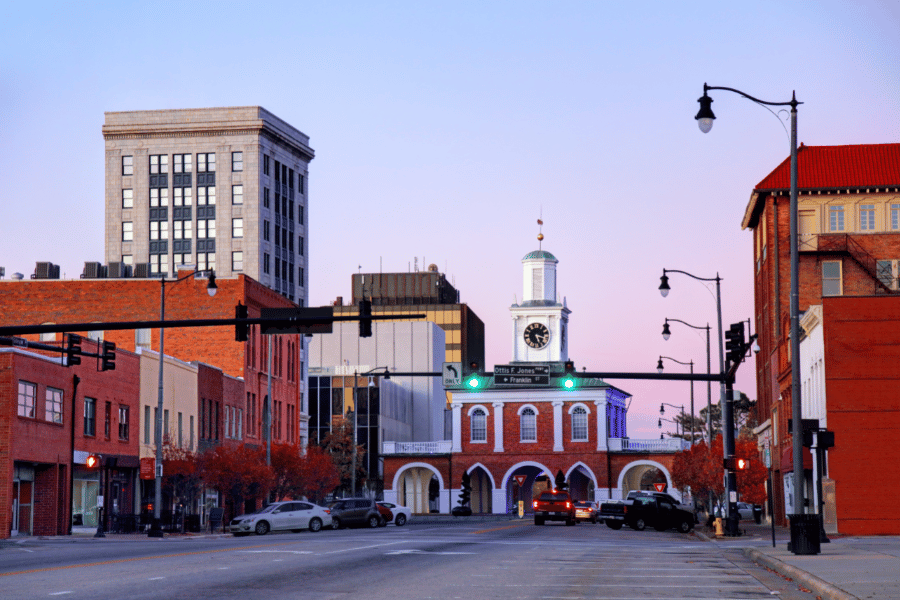
History Of Fayetteville, NC
The history of Fayetteville is unique and can be traced back to two settlements on the Cape Fear River. In 1762, the colonial assembly chartered the town of Campbellton, which soon united with the neighboring village of Cross Creek in 1778.
In 1783, this consolidated town was named Fayetteville after Marquis de Lafayette, a French nobleman who served as a Major General in the Continental Army during the Revolutionary War. Of all the U.S. cities named after Marquis de Lafayette, Fayetteville was the first and is said to be the only city he visited.
Before North Carolina had an official State capital, the North Carolina Legislature would meet in Fayetteville. A significant part of Fayetteville's history occurs at one meeting. During one of their meetings in 1789, the legislature ratified the U.S. Constitution and chartered the University of North Carolina, America's oldest state University.
Due to Fayetteville's location as an inland port and the hub of the early "plank roads," Fayetteville grew as a center of government and commerce.
Today, Fayetteville is still known for its history and military presence. Driving through the city, you will see estimates of its proud past and structures that have been preserved to reflect this history in the nine designated historic districts.
Here is what you need to know about life in Fayetteville
1. The Community
In 2012, Fayetteville celebrated the 250th anniversary of its founding. The city is known as a community of "history, heroes, and a hometown feeling." and has been recognized three times as an "All-American City."
With continuous growth and new developments, Fayetteville continues to expand and be recognized for its efforts to make residents and newcomers feel welcome and included.
Fayetteville, NC, has a population of 209,749 and is the sixth largest city in North Carolina based on population. Fayetteville is also the largest metropolitan area in Southeastern North Carolina, including Fort Bragg, Hope Mills, Spring Lake, Rockfish, and Stedman.
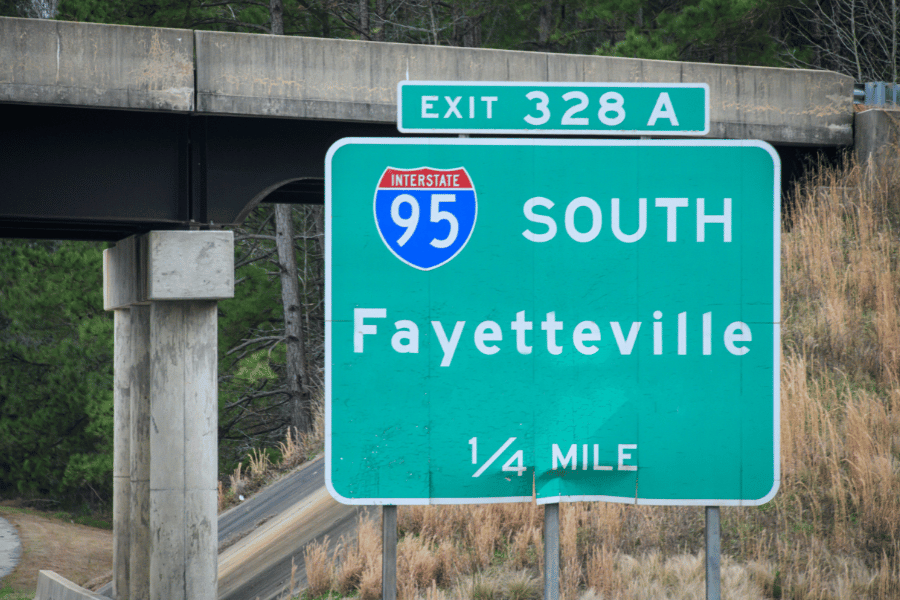
When most people think of Fayetteville, they think of Fort Bragg. Fort Bragg is one of the largest military installations in the world and is located directly adjacent to Fayetteville.
Fort Bragg is home to the Army's XVIII Airborne Corps, the 82nd Airborne Division, the U.S. Army Special Operations Command, and the 3rd Special Forces Group. It is also the headquarters for the Army's combat-ready conventional forces.
The Fayetteville community has various things to do that are enjoyable to residents and bring in new people from all over. Some include local organizations, museums, arts, entertainment and recreation, shopping, dining, festivals, and sports.
One of the most popular events in Fayetteville is the annual Dogwood Festival. The festival is a non-profit, community-focused organization committed to providing various family-centered activities in historic downtown Fayetteville.
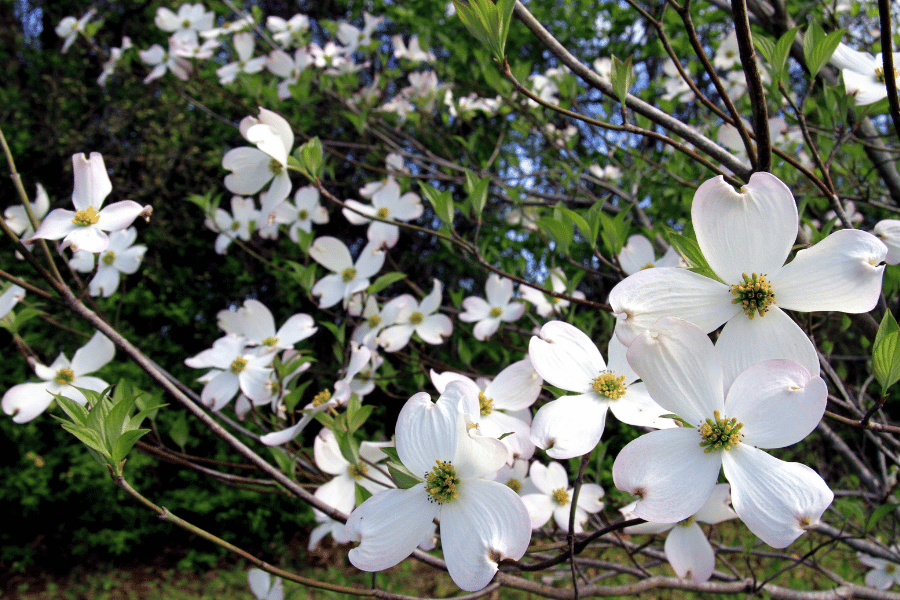
2. Housing Market
Fayetteville has an affordable cost of living, and housing expenses are 29% lower than the national average. It is considered a seller's market, meaning that prices tend to be higher, and homes sell faster. This competitive market is due to the city's continuous growth and proximity to the Fort Bragg military base.
Here is more information about the overall cost of living:
| Cost of Living Item | Average Price in Fayetteville, NC |
| Energy Bill | $193.47 |
| Phone Bill | $187.15 |
| Gas | $3.32 |
| Doctor's Visit | $147.20 |
| Dentist Visit | $121.04 |
*Data Sourced from Payscale.
.png)
The median list price of homes in Fayetteville is $305,652. The most expensive neighborhood in Fayetteville is Kings Grant Club, which is located on the King's Grant Golf & Country Club.
The community is perfect for raising a family with its spacious lots, convenient location, and access to daycare. As a resident, you are close to grocery stores, local shopping, entertainment, award-winning dining, and recreational activities.
Downtown Fayetteville is said to be the most affordable neighborhood in Fayetteville. Plenty of single-family homes on tree-lined streets offer access to top-rated amenities and a family-friendly atmosphere.
Fayetteville, NC, is also home to the Fayetteville Metropolitan Housing Authority, which is dedicated to providing safe, decent, and affordable housing opportunities. They work in the city of Fayetteville to provide housing for city residents through public housing, HCV/Section 8, and the HOPE VI program. The HOPE VI program promotes independent living and assists older adults in avoiding moving into nursing home facilities.
3. Educational Opportunities
Fayetteville, NC, is home to three local colleges and Universities: Fayetteville State University, Methodist University, and Fayetteville Technical Community College (FCTT). Over 90% of the residents in Fayetteville have a high school diploma or higher, and roughly 24% hold a bachelor's or advanced degree.
Fayetteville State University is a historically black university (HBCU) part of the University of North Carolina System. The University is the second oldest state-assisted institution in North Carolina and was founded in 1867 to provide education for black children. Today's school is diverse, with over 6,500 students and 800 facility members offering over 60 degrees, both baccalaureate and master's levels.
Methodist University is a private university established by the North Carolina Conference of the United Methodist Church in Fayetteville. The University offers six graduate and bachelor's degrees in over 80 fields of study.
Fayetteville Technical Community College (FCTT) is part of the North Carolina Community College System. It offers over 280 associate degrees, diplomas, and certificates in science, applied science, the arts, and general education.
Fayetteville, NC, is home to preschools, elementary, middle, and high schools, public distinct schools, public charter schools, and private schools. The Cumberland County School District alone has 86 schools and teaches 49,661 students.
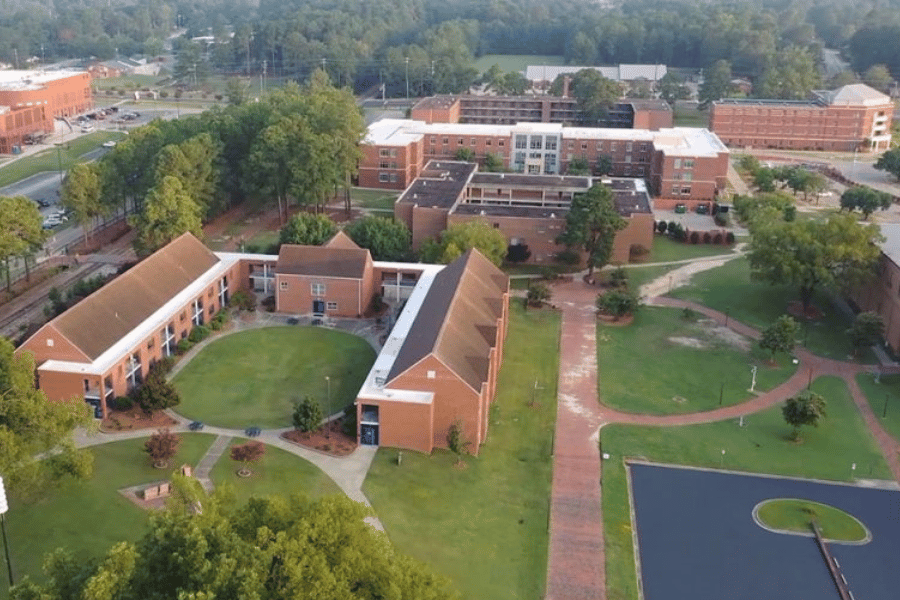
4. Job Market
The job market in Fayetteville is home to many large businesses and opportunities for growth. The largest employers in Fayetteville and the surrounding area include the Department of Defense/Fort Bragg, Cape Fear Valey Health System, Cumberland County Public School System, Walmart, and the Goodyear Tire and Rubber Company.
Leisure and hospitality, construction, manufacturing, and professional and business services are among the fastest-growing job sectors in Fayetteville. The median household income in Fayetteville is $56,395.
5. Safety
Unlike Raleigh's crime rate, Fayetteville's is higher than the national average. Considered to be safer than only 5% of other cities of similar size in the United States, the crime rate in Fayetteville is 39.51 per 1,000 residents.
Take a look at these statistics:
| Violent | Property | Total | |
| Number of Crimes | 1,837 | 6,451 | 8,288 |
| Crime rate (per 1,000 residents) | 8.76 | 30.76 | 39.51 |
| Chances of Becoming a Victim of Property Crime in Fayetteville, NC | Chances of Becoming a Victim of Property Crime in North Carolina |
| one in 33 | one in 48 |
| Chances of Becoming a Victim of Violent Crime in Fayetteville, NC | Chances of Becoming a Victim of Violent Crime in North Carolina |
| one in 114 | one in 256 |
*Data Sourced from NeighborhoodScout.
Although some crime occurs in Fayetteville, officials and the community are doing everything possible to decrease the crime rate. The City of Fayetteville reports that crime is at its lowest in a decade.
6. Weather
Fayetteville's weather patterns are similar to those of other North Carolina cities. The summers are hot and humid, and the winters are short and cold. Year-round temperatures range from 35 degrees Fahrenheit to 91 degrees. You can also expect rain and cloudy weather all year.
July is said to be the hottest month of the year, with an average high of 90 degrees Fahrenheit, but the "hot" seasons last for about four months. The coldest month is January, with an average low of 36 degrees Fahrenheit.
7. Attractions
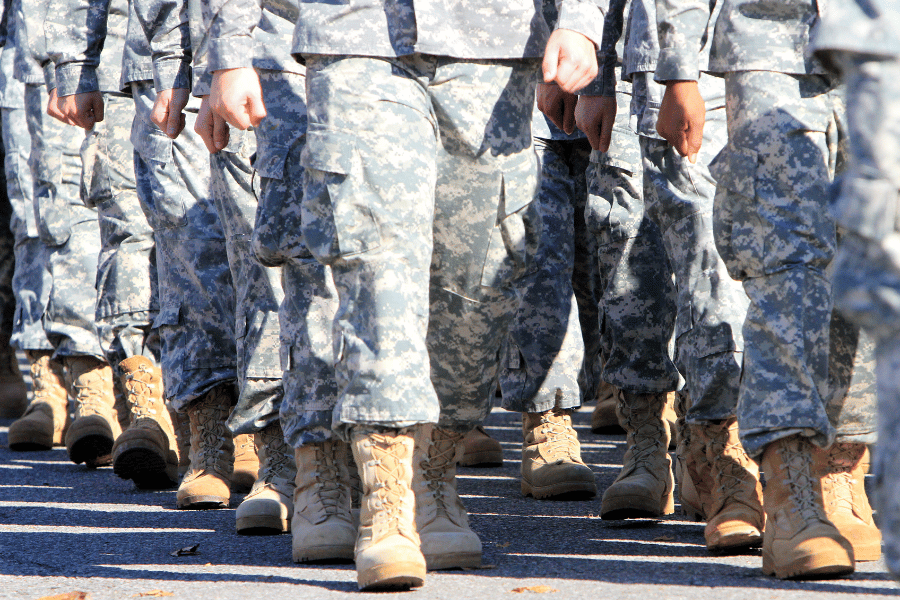
Fayetteville offers many fun things to do for all ages and features events and attractions all year round. Check out these most popular things to do in Fayetteville:
Cape Fear Botanical Gardens
The Cape Fear Botanical Garden is a non-profit that connects everyone with nature! It is situated on 80 acres of beautiful land between the Cape Fear River and Cross Creek. The garden is an excellent place for adults and children to enjoy the outdoors and has private venues.
Crown Complex
Crown Complex is a five-venue complex with over 105,000 square feet of multi-purpose and entertainment space! This includes a 10,000-seat coliseum, a renovated 4,500-seat vintage arena, a 2,400-seat intimate theater, a 60,000-square-foot expo center, and a 9,000-square-foot ballroom.
At Crown Complex, you can catch multiple shows that visit Fayetteville, the Fayetteville Marksmen Hockey Team, and the Cape Fear Heroes indoor football team.
North Carolina Veterans Park
North Carolina Veterans Park is the first State park dedicated to military veterans from all branches. The park includes a fused glass service ribbon wall, an interactive globe, a chandelier made from 33,500 "dog tags," a community lawn area, and a story garden where you can listen to the personal accounts of veterans' military experiences.
Methodology
Factors such as the cost of living, real estate market conditions, crime rate, and job market were considered when determining the top things to know before moving to Fayetteville, NC. Data and information were sourced from Payscale, NeighborhoodScout, and the U.S. Census Bureau.
FAQs
What are the pros and cons of living in Fayetteville, NC?
Fayetteville, NC, is a great place to live. Its cost of living is affordable, the housing market is growing, there is a strong military presence, and the environment is family-friendly. However, living here can present some challenges, including a higher crime rate, a lack of public transportation, and limited job opportunities outside the military.
How far is Fayetteville, NC, from the beach?
Carolina Beach is the closest beach to Fayetteville, NC, and it is about a two-hour drive away. The North Carolina beaches are a great way to relax and unwind, perfect for a day trip or weekend getaway.
What is the closest major airport to Fayetteville, NC?
The Fayetteville Regional Airport is in the city but only provides flights to Charlotte, NC, and Atlanta, GA. The Raleigh-Durham International Airport is only about an hour and 20 minutes away and offers more flight options.
Moving to Fayetteville, NC - Final Thoughts
With its low cost of living, thriving job market, affordable homes, affluent community, delicious restaurants, fun things to do, and continuous growth, Fayetteville constantly attracts new residents. It has plans for a very bright future.
Fayetteville, NC, is the perfect location for people who need low housing costs but want to be close to major cities. The city is approximately 65 miles from Raleigh and about 200 miles from Charlotte. Interstate Highway 95 makes commuting to other cities and states easy, safe, and convenient.
There are many reasons why people move to Fayetteville, whether it be jobs, history, weather, or affordable housing. Relocating has many pros.
If you're considering the move and looking for real estate in the area, contact us. If you have any questions, we would love to connect you with an agent who can help in every aspect of your home search.
.png)
